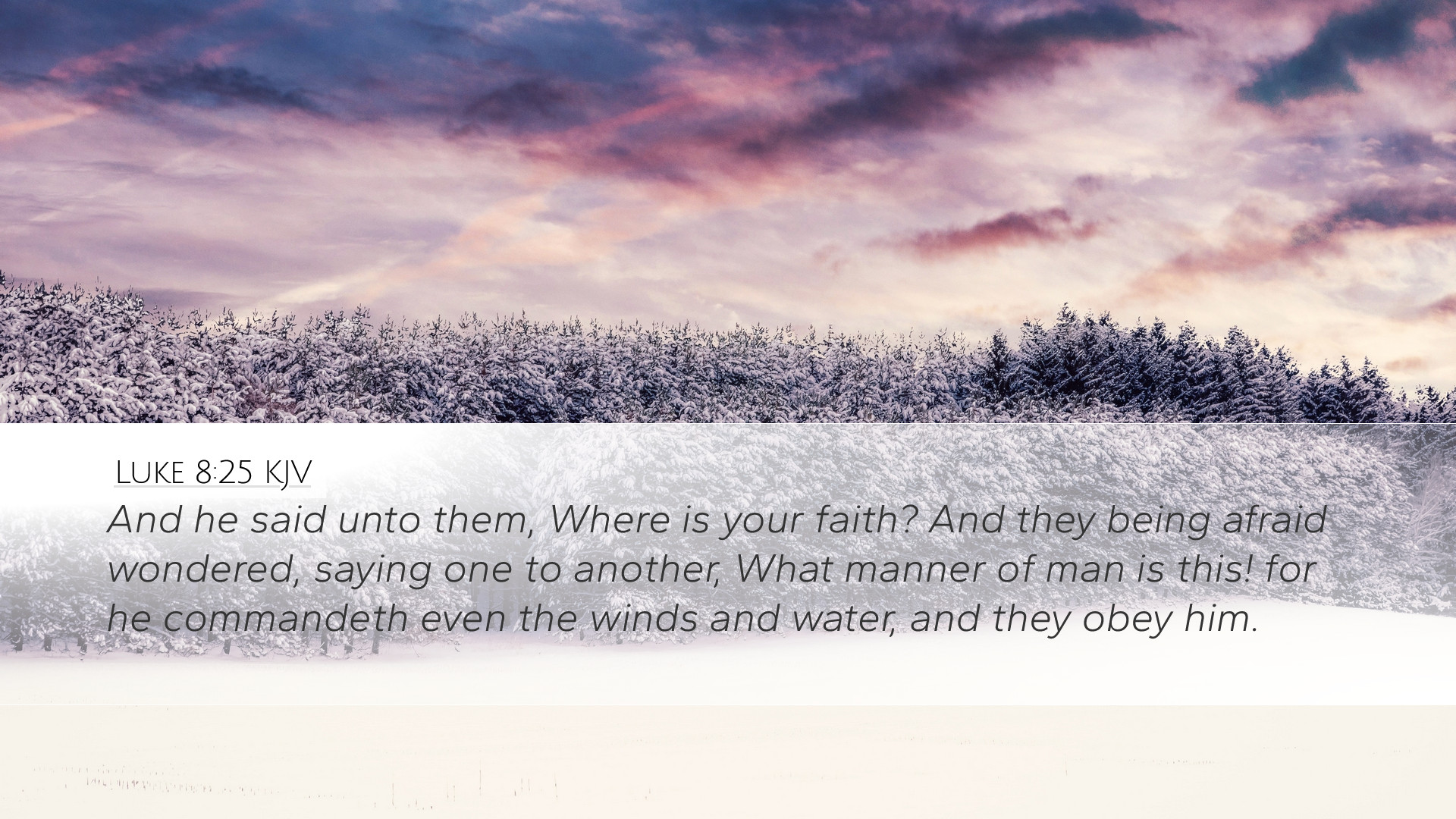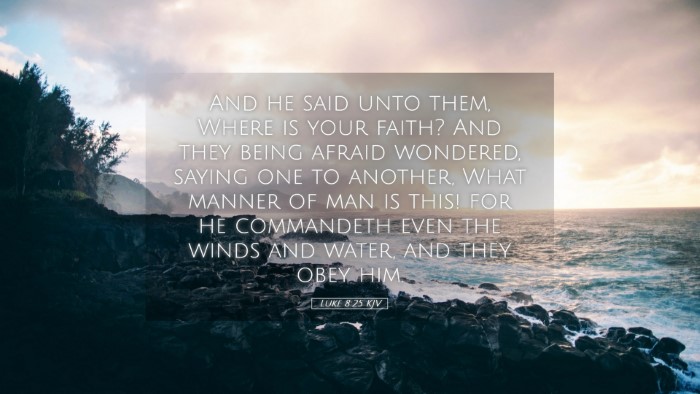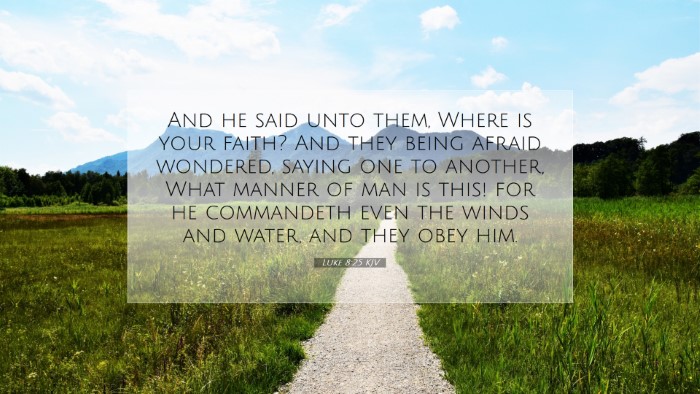Commentary on Luke 8:25
Verse Text: "And he said unto them, Where is your faith? And they being afraid wondered, saying one to another, What manner of man is this! For he commandeth even the winds and water, and they obey him."
Introduction
Luke 8:25 captures a remarkable moment in the ministry of Jesus, where His disciples experience awe and fear in response to His miraculous power over nature. This commentary amalgamates insights from respected public domain scholars to explore the theological and practical implications of this verse.
Context and Background
In the preceding verses, we find the account of Jesus and His disciples crossing the Sea of Galilee. A sudden storm threatens to capsize their boat, leading to panic among the disciples. Meanwhile, Jesus is asleep, an act that not only reflects His humanity but also emphasizes His divine authority and peace.
Historical Setting
The Sea of Galilee, known for its sudden squalls due to the surrounding topography, serves as an apt backdrop for this event. Disciples, comprised mainly of fishermen, would have known the dangers of such storms. Their fear signals not just the physical threat but reveals deeper spiritual questions about their faith and understanding of Jesus’ identity.
Exegesis of the Verse
"Where is your faith?"
Matthew Henry comments that this rhetorical question is a call to self-examination for the disciples. Their lack of faith in the face of imminent danger underscores a spiritual deficiency. Henry suggests that this lesson is pivotal for every believer, calling us to evaluate our trust in Christ, particularly in turbulent times.
"They being afraid wondered, saying one to another..."
Albert Barnes reflects on the disciples' fear, noting that it unveils human vulnerability in crises. Their question, "What manner of man is this?" indicates a growing awareness of Jesus' divine nature. This implies a journey from disbelief to an understanding of Christ’s identity, a process central to discipleship.
"For he commandeth even the winds and water, and they obey him."
Adam Clarke emphasizes the authority of Jesus over creation, which asserts His divinity. Clarke connects this to Old Testament themes, recalling how God alone has power over the sea (Psalm 89:9). The obedience of the winds and waters compounds their astonishment, demonstrating that in Christ, the fulfillment of divine sovereignty is realized.
Theological Implications
This verse provides rich theological insights regarding faith and divine authority. The disciples' fear serves as a metaphor for the believer's struggle between faith and doubt. It suggests that faith is not merely the absence of fear but a relational trust in Christ amidst fear.
- Faith in Crisis: Reflecting on this moment, pastors can emphasize the need for faith during life's storms. Even as doubt arises, the presence of Jesus is a source of peace.
- Awareness of Christ: The disciples’ recognition of Jesus' authority reveals an essential element of Christian faith—the progressive revelation of who Christ is.
- Divine Sovereignty: Clarke's teachings remind us that understanding Christ's nature is crucial in our theology. Jesus walks in the divine authority of the Creator, inviting us to trust Him comprehensively.
Practical Applications
Understanding Luke 8:25 can transform how believers face adversity. Here are several implications for pastoral care and lay ministry:
- Encouragement in Trials: Pastors should remind congregants that faith does not eliminate fear but invites Jesus into our fears. Sharing personal testimonies of overcoming challenges with faith can inspire others.
- Teaching on the Nature of Christ: Regularly teaching about Jesus' authority helps believers build their faith. Understanding His nature will deepen their relationship with Him and enhance their trust in His promises.
- Spiritual Growth: Encourage a culture where questioning one's faith is acceptable. This verse invites believers to explore their understanding of who Jesus is, fostering deeper spiritual inquiry.
Conclusion
Luke 8:25 is a powerful reminder of the interplay between fear and faith and the profound identity of Jesus. The commentary from Matthew Henry, Albert Barnes, and Adam Clarke provides a holistic view that challenges us to contemplate where our faith lies. As we navigate our own storms, we must remember that it is not simply the absence of fear that we seek but the presence of Christ, who commands even the winds and waters. May this understanding deepen our faith and enrich our worship.


